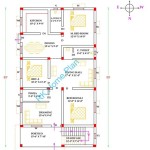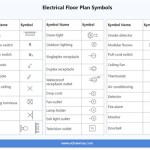Essential Aspects of Financial Planning for Building a House
Building a house is a significant financial undertaking that requires careful planning and preparation. To ensure a successful project, consider the following essential aspects of financial planning:
1. Determine Your Budget
Establish a realistic budget that outlines the total estimated cost of your house, including land acquisition, construction materials, labor, and permits. Consider potential overruns and include a contingency fund for unexpected expenses.
2. Secure Financing
Explore various loan options, such as construction loans and mortgages, to finance your project. Research different lenders, compare interest rates, and lock in the best terms possible. Consider down payment requirements, loan terms, and closing costs.
3. Manage Cash Flow
Plan for a consistent cash flow throughout the construction process. Secure funding sources to cover ongoing expenses, such as materials, labor, and permits. Monitor your budget closely and make adjustments as necessary.
4. Choose a Contractor Wisely
Select a reputable contractor with a proven track record and experience in building similar projects. Obtain multiple bids, check references, and review contracts thoroughly before signing. Establish clear expectations and communication channels with your contractor.
5. Understand Costs
Be aware of the various costs associated with building a house, including materials, labor, permits, taxes, and insurance. Research market prices and negotiate with suppliers to minimize expenses. Consider the long-term maintenance and operational costs as well.
6. Plan for Taxes and Insurance
Factor in property taxes, homeowners insurance, and mortgage insurance (if applicable) into your financial plan. Research local tax rates and insurance premiums to estimate these expenses.
7. Anticipate Delays and Unexpected Expenses
Building projects can be subject to delays and unexpected costs, such as weather conditions, material shortages, or labor issues. Create a contingency fund to cover these potential expenses and be prepared to adjust your timeline or budget as needed.
8. Seek Professional Advice
Consider consulting with a financial advisor or mortgage broker for professional guidance. They can help you navigate the financial complexities, optimize your financing options, and ensure a financially sound plan for your house building project.
Conclusion
Financial planning is crucial for the success of any house building project. By carefully considering these essential aspects, you can proactively manage your finances, minimize risks, and achieve your dream home while staying within your budget.

The Financial Blueprint Fortis Agency

Free Financial Planning Building Your House Quotes Life S Insurance

Financial Planning Tip 4 Settle Your Basic Have You Planned
Join Phfa Beahive For Building Your Financial House Tickets Multiple Dates Eventbrite

Financial Planning And The Role Your House Will Play

Premium Photo Buy House Personal Financial Planning Concept Saving Money And

Real Life Financial Planning For Young Lawyers A Lawyer S Guide To Building The House Of Their Dreams By Todd D Bramson And Thomas H 2006 Perfect

Financial Planning Priorities For Americans In Germany Or The Netherlands 2024

Concept Of Financial Planning Responsibility Expenses And Income Asset Approval Concepts Purchases To Buy A Car House Ideas For Home Checklist Loan Tax Stock Photo Adobe

Introduction To Financial Planning Spectrum Wealth Group








